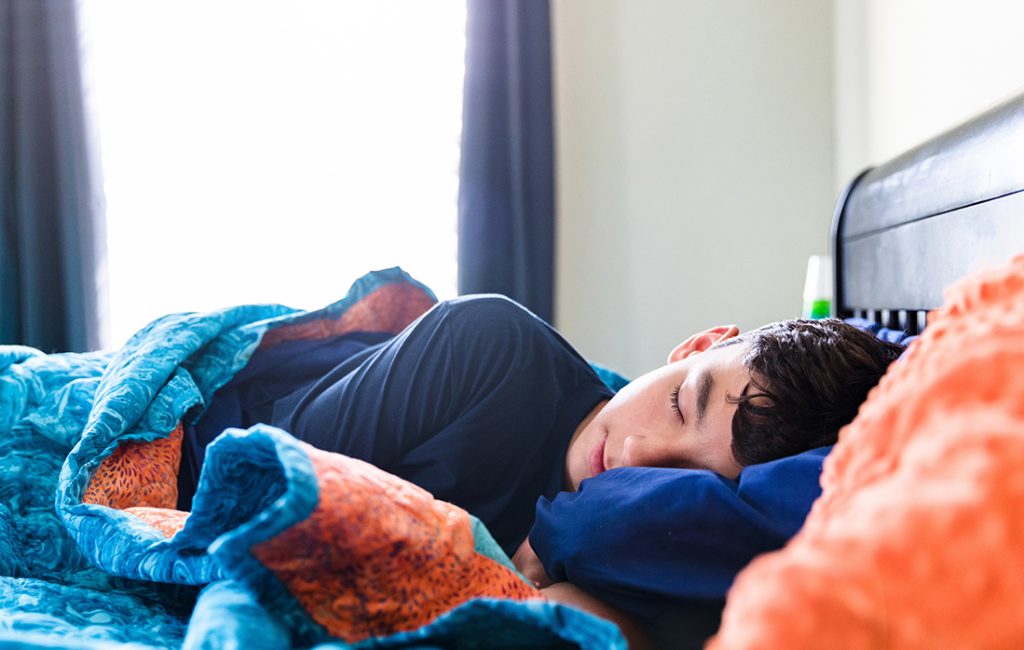
In new research presented at the European Society of Cardiology conference that recently took place in Barcelona, researchers found that adolescents who sleep fewer than eight hours per night have an increased risk of being overweight or obese compared to their peers with adequate sleep.
Moreover, the study also showed that those same sleepers had a higher risk of other health concerns, including elevated blood pressure, abnormal blood lipid and glucose levels, and excess fat around the middle.
Study author Jesús Martínez Gomez, a researcher in training at the Cardiovascular Health and Imaging Laboratory, Spanish National Centre for Cardiovascular Research (CNIC), Madrid, Spain, told the European Society of Cardiology, “Our study shows that most teenagers do not get enough sleep and this is connected with excess weight and characteristics that promote weight gain, potentially setting them up for future problems.”
The study included 1,229 adolescents currently enrolled in the SI! Program for Secondary Schools trial in Spain. There were equal numbers of boys and girls, and the average age of the participants was 12. Using wearable activity trackers, researchers measured how much sleep the kids were getting over a period of seven days. While the American Academy of Sleep Medicine recommends that tweens and teens get anywhere from nine to 12 hours of sleep per night, researchers kept things simple by using eight hours as the baseline. Participants were then categorized in the following groups based on how much they slept:
- Optimal sleep – more than eight hours
- Short sleep – seven to eight hours
- Very short sleep – less than seven hours
Body mass index was used to determine weight and obesity levels.
Ultimately, researchers found that compared with optimal sleepers, overweight/obesity was 21 percent and 72 percent more likely in very short sleepers aged 12 and 14. Moreover, short sleepers aged 12 and 14 were 19 percent and 29 percent, respectively, more likely to be overweight or obese when compared with optimal sleepers in the same age groups. Short sleepers and very short sleepers (ages 12 and 14) had higher average metabolic syndrome scores than optimal sleepers.
Martínez Gómez also told the European Society of Cardiology, “The connections between insufficient sleep and adverse health were independent of energy intake and physical activity levels, indicating that sleep itself is important.” After noting that excess weight and metabolic syndrome are associated with cardiovascular disease, he suggested that schools and public health programs could teach good sleep habits as a way to mitigate those risks.
“Parents can set a good example by having a consistent bedtime and limiting screen time in the evening,” he added. “Public policies are also needed to tackle this global health problem.”
In other interesting takeaways, the study also revealed:
- Boys tended to get less sleep than girls.
- Teenagers who got the most sleep also had better quality sleep (they experienced fewer night wakings and spent more time in bed actually sleeping compared to those with shorter sleep).
- Among 12 year olds, only 34 percent of the participants slept for the optimal 8 hours per night. And (perhaps not surprisingly), that percentage continued to drop as the age of the participants increased. Of those aged 14 and 16, only 23 percent and 14 percent slept at least 8 hours per night, respectively.
